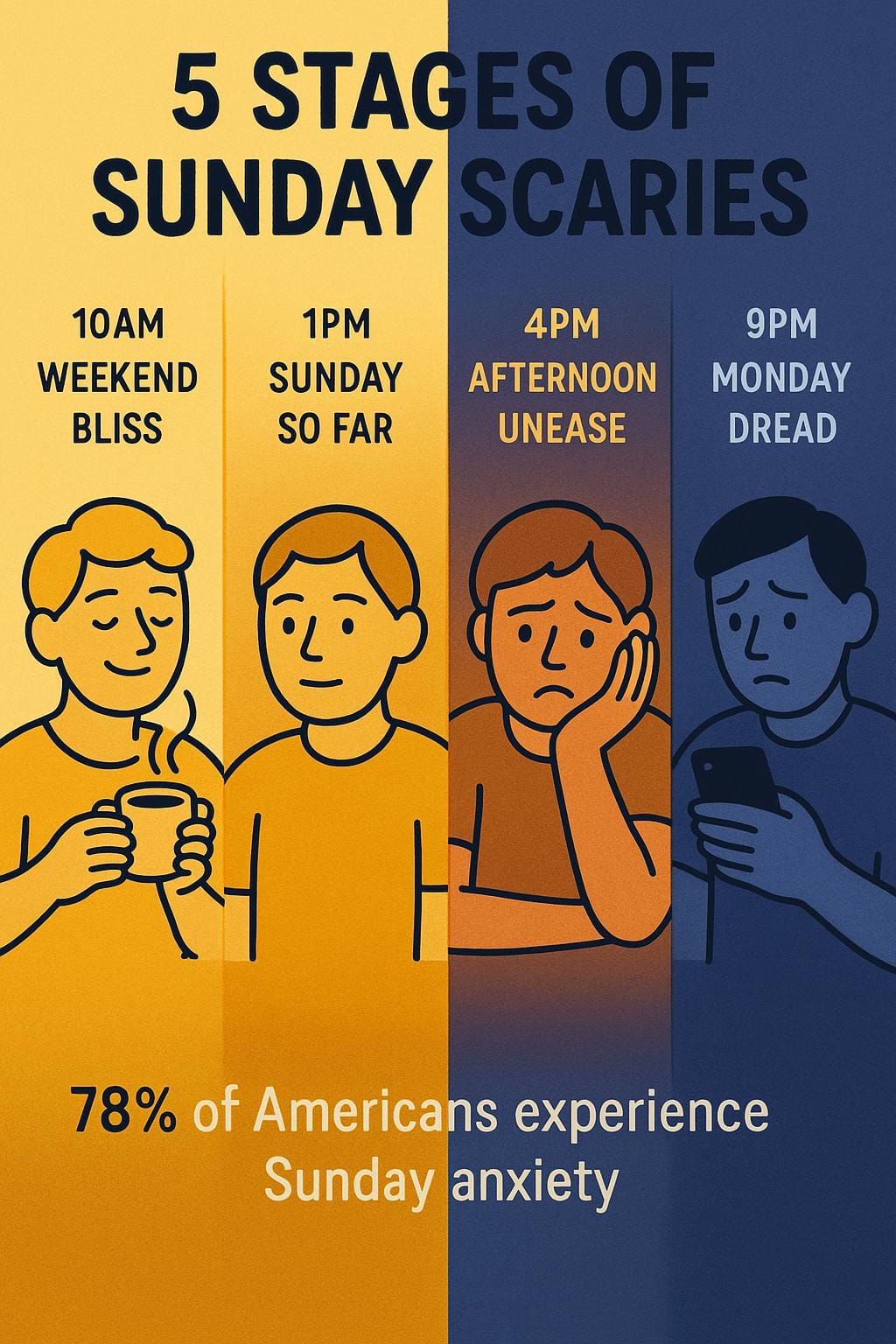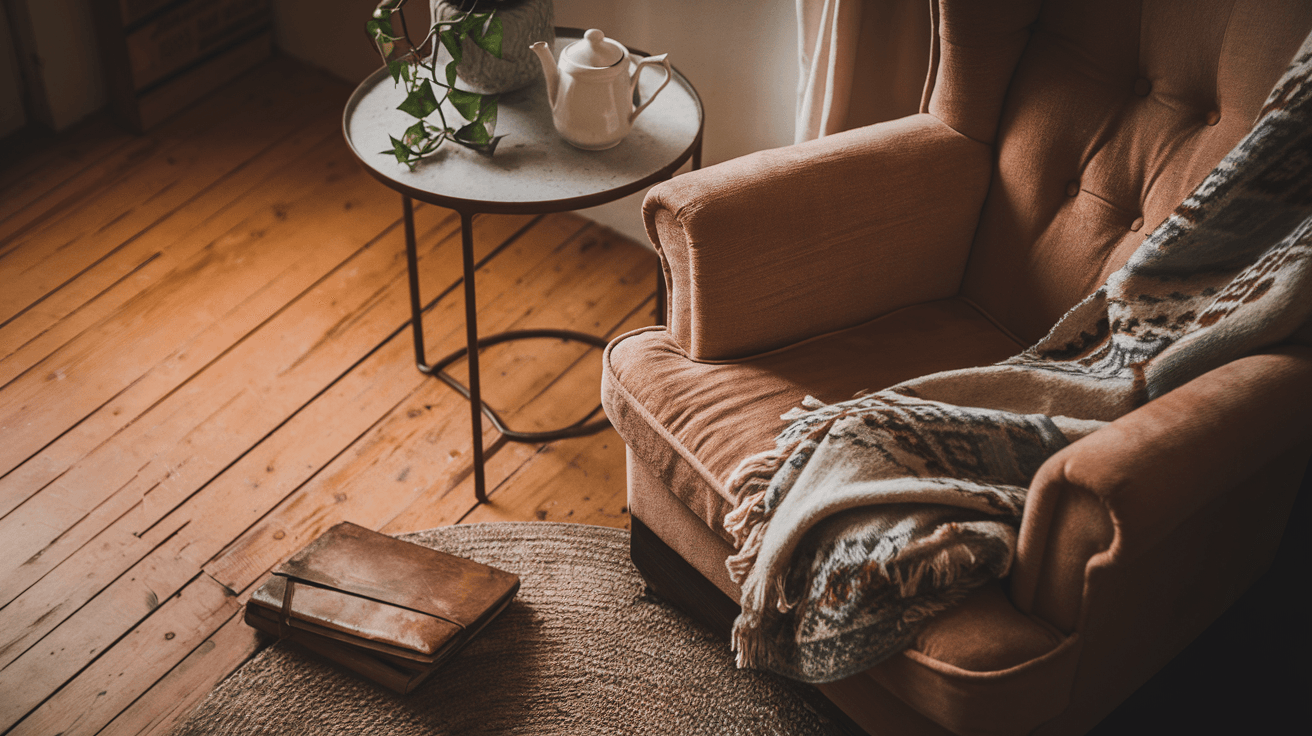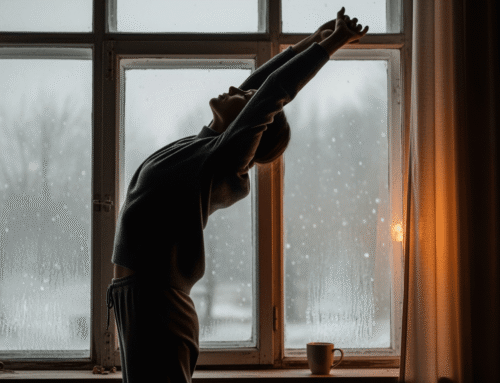That familiar cloud of dread that descends on Sunday afternoon has a name—the sunday scaries—and it’s as reliable as your Monday morning alarm. What begins as a gentle whisper of “remember that email you need to send” quickly snowballs into full-blown weekend anxiety that has you mentally rehearsing conversations with your boss while you’re supposed to be enjoying the last precious hours of freedom.
Key Takeaways
- Anticipatory anxiety peaks around 3-4 PM on Sundays for most people, affecting 78% of Americans
- The Instagram-perfect “Sunday reset” culture might actually be making your anxiety worse
- Sensory experiences like comfort food, music, and tactile pleasures can short-circuit anxiety more effectively than productivity
- Creating intentional boundaries between weekend and workweek helps preserve your mental health
- Small moments of defiant pleasure on Sunday night can be more effective than elaborate self-care routines
The Inevitable 3 PM Slump: When Your Sunday Self Realizes Tomorrow Is Monday
There’s a specific moment every Sunday when time seems to warp and suddenly Monday feels like it’s breathing down your neck. For me, it hits around 3 PM—I’ll be mindlessly scrolling through TikTok or halfway through a movie when my stomach does that subtle drop and my brain helpfully chirps, “Remember that presentation tomorrow?”
This isn’t just me being dramatic (though I excel at that too). A staggering 78% of Americans report experiencing this same monday dread, with physical symptoms that can include anything from a tight chest to the sudden urge to reorganize your entire digital life. Google searches for “Sunday Scaries” have skyrocketed by 300% since 2015, proving we’re collectively freaking out in our final weekend hours.
What’s actually happening is a form of anticipatory anxiety—your brain’s unhelpful habit of time-traveling to predict negative outcomes before they happen. That weird grief you feel as your weekend slips away isn’t imaginary; it’s your body processing the transition shock between freedom and structure.
The Myth of the Perfect Sunday Reset (And Why It’s Making Everything Worse)
Have you fallen down the rabbit hole of #SundayReset videos? You know the ones—beautiful people with impossibly clean apartments meal-prepping rainbow-colored lunches while also journaling, face-masking, and somehow finding time to layout a week’s worth of color-coordinated outfits. I’m exhausted just describing it.
Here’s the uncomfortable truth: this performative prep culture might be sabotaging your mental health rather than supporting it. Studies show that rigid productivity structures on Sundays actually increase anxiety levels instead of reducing them—you’re essentially bringing Monday’s energy into your Sunday and getting the worst of both worlds.
The data consistently shows that unstructured relaxation is more effective than frantic preparation. When LinkedIn surveyed professionals about their Monday performance, those who practiced actual rest (not “productive rest”) reported 26% higher focus and satisfaction than those who spent Sunday in preparation mode.
The pressure to have the perfect Sunday reset has created what psychologists call “toxic productivity”—the belief that every moment, even leisure time, must be optimized. This mindset is particularly dangerous because it disguises itself as self care routine while actually being its exact opposite.
Gentle Rebellion: A Sensory Approach to Sunday Evenings
Instead of fighting your Sunday anxiety with more to-do lists, try seducing your nervous system into relaxation through your senses. Your brain processes sensory information through different neural pathways than your worried thoughts, making sensory experiences powerful anxiety relief tools that can short-circuit the stress cycle.
Science backs this up—music between 60-80 beats per minute has been proven to reduce stress hormone levels (think: Bon Iver’s “For Emma, Forever Ago” or Khruangbin’s “Con Todo El Mundo”). Comfort foods trigger dopamine release not just through taste but through the nostalgia and memories they evoke, creating a neurological distraction from your spinning thoughts.
Here are some sensory experiences that can ground you back in the present moment:
- The weight of a heavy blanket against your skin (bonus points if it’s slightly cool from being unused all day)
- The first sip of tea that’s exactly the right temperature
- The satisfaction of your favorite spoon against your lips
- The immediate calm from specific scents like lavender or whatever reminds you of safety
- The sound of rain apps or white noise machines that give your busy brain something simple to focus on
Reclaiming the Quiet Hours: Your Sunday Night Manifesto
What if—stay with me here—Sunday night wasn’t the enemy but actually a sacred space you protected fiercely? I’ve started to view my Sunday evenings as a quiet rebellion against the work life balance collapse that wants me constantly preparing for productivity.
The most effective coping strategies aren’t grand gestures but micro-moments of pleasure that remind you of your humanity. Maybe it’s watching exactly one episode of that comforting show you’ve seen twelve times already, or having an impromptu dance party to one perfect song, or texting a friend the most ridiculous observation about your day.
Psychological research on temporal reclamation shows that mindfully engaging with “transition times” significantly reduces anxiety. By creating small rituals that clearly delineate your weekend from your workweek, you’re building burnout prevention right into your schedule.
I’ve written in my journal: “Sunday night is not the end of something good but a moment of peace before the noise begins.” This tiny reframe has turned my Sunday evenings from dread-fests into something approaching sacred—a quiet defiance against the world that wants me always thinking ahead instead of being here now.
Finding Your Sunday Night Ritual
The best lifestyle blog advice I can offer is this: find your perfect Sunday night ritual through experimentation, not through someone else’s aesthetic TikTok. My ritual involves fuzzy socks, exactly one fancy chocolate, and reading physical books with no redeeming value whatsoever.
Whatever ritual you choose, make it delightfully low-effort and high-reward. The point isn’t to accomplish anything or improve yourself—it’s to create a gentle buffer between your weekend self and your Monday self, a small act of compassion for your busy brain.
We may not be able to eliminate the Sunday Scaries entirely—they’re a natural response to the arbitrary structure of our work week. But we can acknowledge them, sit with them for a moment, and then gently redirect our attention to the present moment, where Sunday is still Sunday and Monday is still a problem for Future You.
Sources
LinkedIn: Sunday Scaries Are Real — Here’s How To Combat Them
Healthline: Understanding the Sunday Scaries
Verywell Mind: Sunday Scaries Definition, Symptoms, Traits, Causes & Treatment











